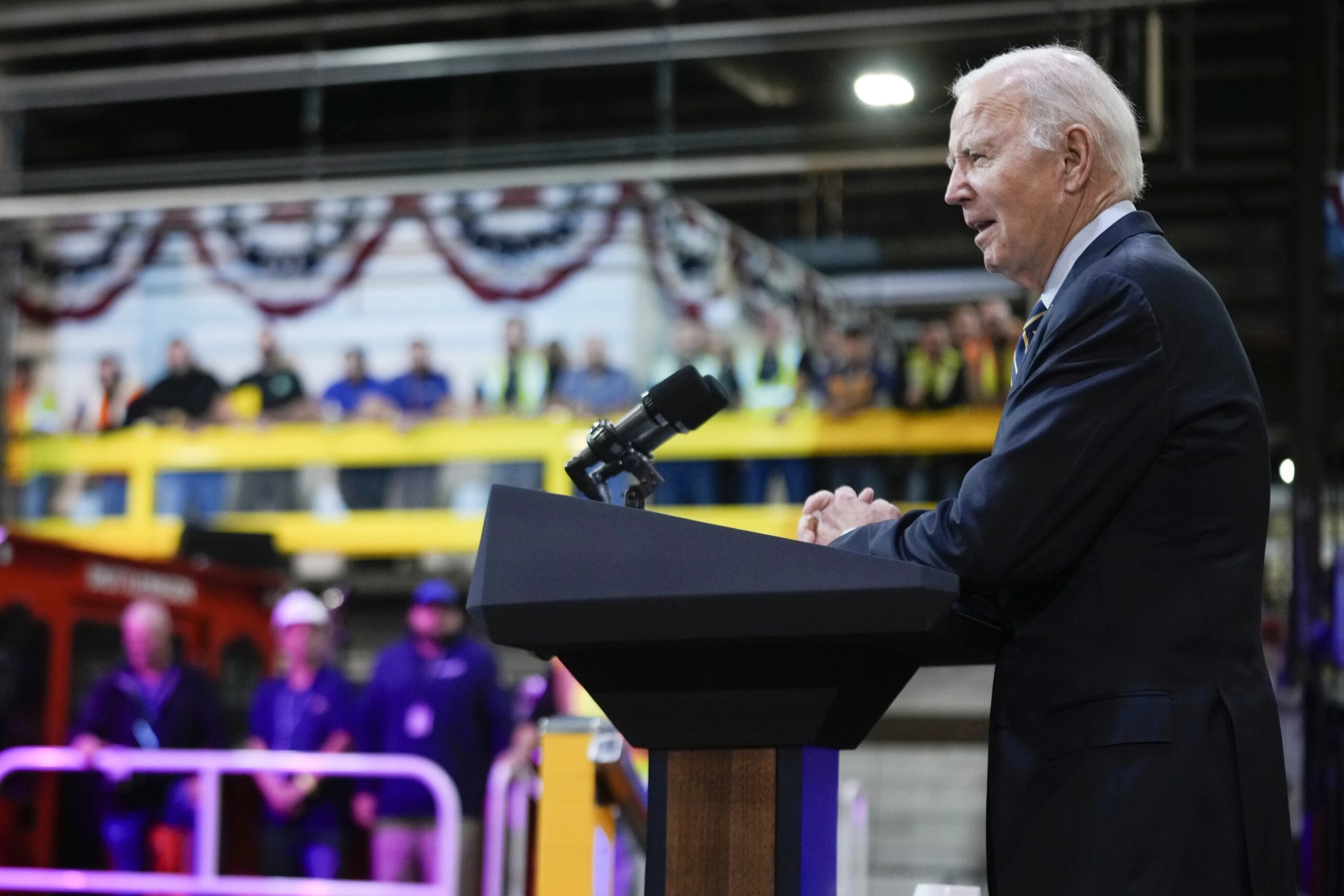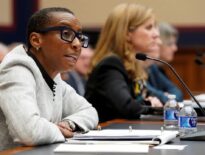President Joe Biden goes into next year’s election with a vexing challenge: Just as the U.S. economy is getting stronger, people are still feeling horrible about it.

Pollsters and economists say there has never been as wide a gap between the underlying health of the economy and public perception. The divergence could be a decisive factor in whether the Democrat secures a second term next year. Republicans are seizing on the dissatisfaction to skewer Biden, while the White House is finding less success as it tries to highlight economic progress.
“Things are getting better and people think things are going to get worse — and that’s the most dangerous piece of this,” said Democratic pollster Celinda Lake, who has worked with Biden. Lake said voters no longer want to just see inflation rates fall — rather, they want an outright decline in prices, something that last happened on a large scale during the Great Depression.
“Honestly, I’m kind of mystified by it,” she said.
By many measures, the U.S. economy is rock solid. Friday’s employment report showed that employers added 199,000 jobs in November and the unemployment rate dropped to 3.7%. Inflation has plummeted in little over a year from a troubling 9.1% to 3.2% without causing a recession — a phenomenon that some once skeptical economists have dubbed “immaculate.”
Yet people remain dejected about the economy, according to the University of Michigan’s Index of Consumer Sentiment. The preliminary December figures issued Friday showed a jump in sentiment as people seem to recognize that inflation is cooling. But the index is still slightly below its July level.
In a possible warning sign for Biden, people surveyed for the index brought up the 2024 election. Sentiment rose dramatically more among Republicans than Democrats, potentially suggesting that GOP voters became more optimistic about winning back the White House.
“Consumers have been feeling broadly uneasy about the economy since the pandemic, and they are still coming to grips with the notion that we are not returning to the pre-pandemic ‘normal,’” Joanne Hsu, director and chief economist of the survey, said of the overall trend in recent months.
Jared Bernstein, chair of the White House Council of Economic Advisers, stressed that a strong underlying economy is “absolutely necessary” to eventually lifting consumer sentiment. His argument is that as the economy continues to improve, more people will recognize the benefits and sentiment will improve.
“We’ve got to keep fighting to lower costs and build on the progress that we’ve made,” Bernstein said. “We just need more time to get these gains to working Americans — that’s our plan.”
The White House has made three major shifts in its messaging in hopes of building up confidence in Biden’s economic leadership. The president this summer began to pepper his speeches with the term “Bidenomics” to describe his policies, only to have Republicans latch onto the word as a point of attack.
White House officials have pointed out specific items for which prices have fallen outright. They noted lower prices for turkeys during Thanksgiving as well as for eggs. Biden repeatedly emphasizes that he lowered insulin costs for Medicare participants, while other officials discuss how gasoline prices have dropped from their peak.
Second, Biden recently started to blame inflation on corporations that hiked prices when they saw an opportunity to improve their profits, bringing more prominence to an argument first used when gasoline prices spiked. The president’s argument is suspicious to many economists, yet the intended message to voters is that Biden is fighting for them against those he blames for fueling inflation.
“Let me be clear: Any corporation that is not passing these savings on to the consumers needs to stop their price gouging,” Biden said recently in Pueblo, Colorado. “The American people are tired of being played for suckers.”
And Biden is now going after the track record of former President Donald Trump, the current GOP front-runner. Biden’s campaign sent out a statement after Friday’s employment report that said, “ Despite his claims of being a jobs president, Donald Trump had the worst jobs record since the Great Depression, losing nearly three million jobs.”
The Republican counter to Biden has been to dismiss the positive economic data and focus on how voters are feeling. As the annual inflation rate has fallen, GOP messaging has focused instead on multi-year increases in consumer prices without necessarily factoring in wage gains. And Republican lawmakers have argued that people should trust their gut on the economy instead of the statistics cited by Biden.





